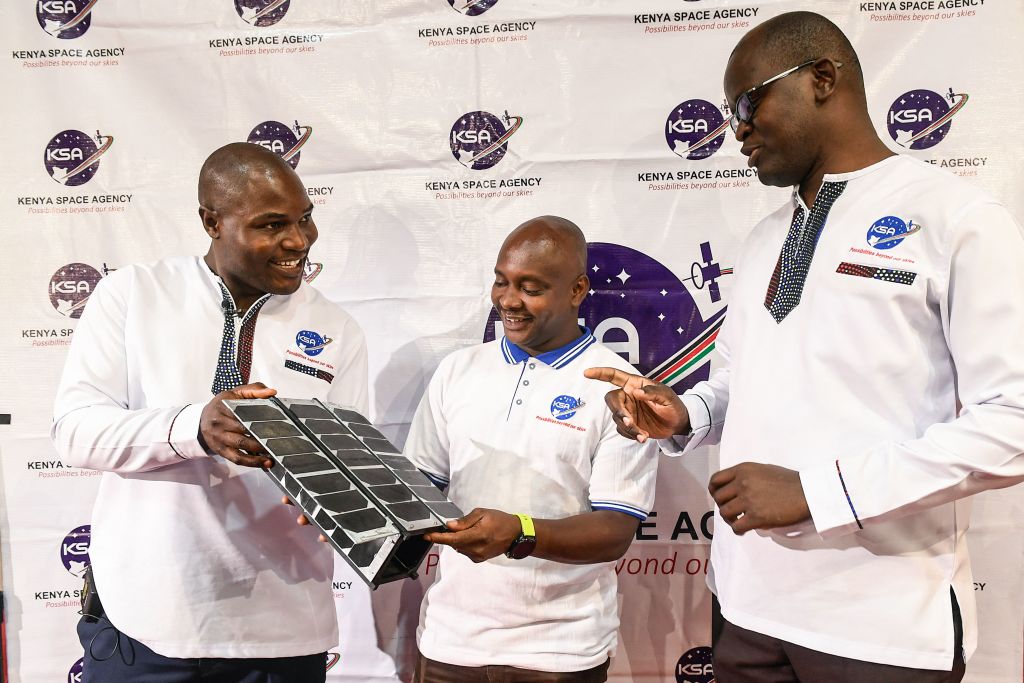African nations are increasingly turning to space technology to address resilience and security issues such as communications, border control, wildlife protection, maritime monitoring and natural resource management.
People looking to the stars for answers to terrestrial problems is not new on the continent. A nomadic group in Egypt built the Nabta Playa stone circle more than 7,000 years ago to mark the summer solstice and chart the arrival of the rainy season.
Nabta Playa, which predates England’s Stonehenge, is the world’s oldest stone circle and possibly the planet’s first astronomical observatory. It now rests reassembled in Egypt’s Nubian Museum in Aswan. The April 2025 opening of the African Space Agency (AfSA) in Cairo secures Egypt’s place in the continent’s spacefaring history.
AfSA is a testimony to African nations’ increasing reliance on space to address various problems. “Space is rapidly emerging as a strategic frontier for African countries given its concrete contributions to national security, socioeconomic development, and resilience against transnational threats,” Dr. Temidayo Oniosun, founder and managing director of the company Space in Africa, wrote for the Africa Center for Strategic Studies in September 2025.
At least 21 African nations have established space programs, and 18 of those have launched at least one satellite for a continental total of 65. Another 120 satellites are in development and should launch by 2030.
AfSA provides policy coordination, reduces duplication, and fosters shared access to infrastructure and data. The Africa-European Union Space Partnership Programme, launched in 2025 with 100 million euros in EU funding, will strengthen African nations’ ability to monitor weather, improve agriculture, manage disasters and drive private sector development, all “while ensuring African ownership of the data and systems it generates,” Oniosun wrote.
Individual nations also are moving forward with initiatives as annual continental space-related spending averages $500 million a year. For example, Tunisia’s Ministry of Agriculture, Water Resources and Fisheries since 2021 has deployed a satellite monitoring system for vessels more than 15 meters long, according to Space in Africa.
The South African National Space Agency (SANSA) announced in April 2025 that it would acquire weekly satellite images showing the nation’s exclusive economic zone, including Prince Edward and Marion Islands, to protect the nation’s maritime economy. The effort is part of South Africa’s larger Operation Phakisa, a governmental initiative to fast-track development on a range of issues in the National Development Plan. Phakisa means “hurry up” in the Sesotho language.
“SANSA’s Earth Observation sensor portfolio is designed to support decision-makers in government and the private sector by providing satellite data for the management of natural resources, disaster response, food security and agriculture, human settlements, ecosystems and biodiversity, marine and maritime activities, and infrastructure planning,” SANSA announced.
In East Africa, the Kenya Space Agency and Mount Kenya Wildlife Conservancy in 2023 signed a five-year partnership to use geospatial technology to bolster conservation of Mountain Bongo antelopes, a critically endangered species, according to Ghana News. Only a few dozen of the animals remain in Kenya’s alpine forests.
“The common thread in these examples is that space assets are not abstract symbols of technological prestige, but concrete instruments of sovereignty and security,” Oniosun wrote for the Africa Center.
The possibility for increased security against terrorism, trafficking and other threats through space technology is evident.
“When you look at most of the problems that the continent is facing today, a lot of it can be addressed with better information and better data,” Oniosun told NPR in a May 25, 2025, interview. “You can monitor borders from satellite technology. Surveillance can help with armed conflict. You can monitor infrastructure. You know, we’re having a lot of issues around mining in Africa today. A lot of these are what you can actually address with better information and better data.”
In the end, though, Oniosun says cooperation and resource sharing will be the key to continental security through space technology.
“The real measure of success will not be how many satellites each country launches, however, but how effectively the continent as a whole harnesses space to achieve shared goals,” he wrote for the Africa Center. “Coordination, capacity building and continental institutions such as the AfSA will be central to avoiding fragmented investments and ensuring that space becomes a driver of integration rather than duplication.”

